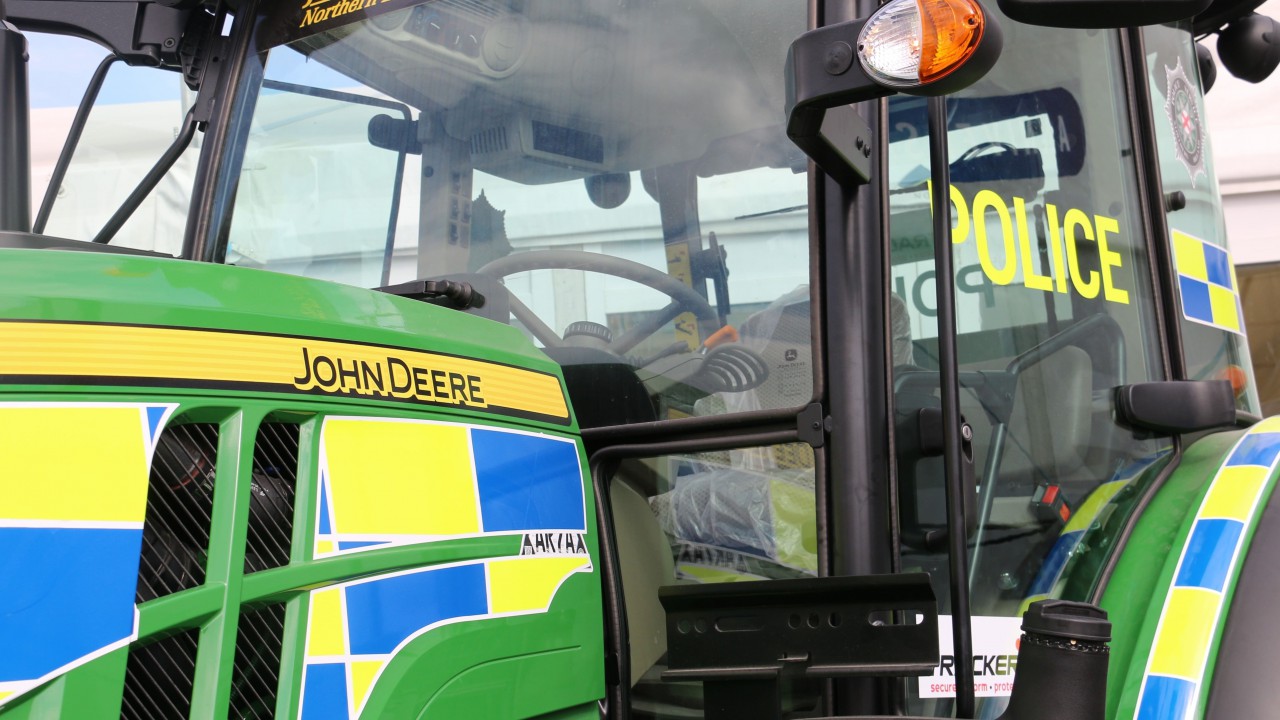In fear of crime, being let down and feeling ignored, survey results revealed today show Rural Britain is living on the edge.
Three years on from the first National Rural Crime Survey, today’s results were collated from more than 20,000 people across England and Wales.
They show the perception of policing in rural communities is poor and much worse than in urban areas.
Only 27% of respondents say their local police are doing a good job. The figure is 11% lower than when the same question was asked in 2015 and lower than the national figure from the Crime Survey of England and Wales, which finds 62% rate the police in their area as ‘good’ or ‘excellent’.
Some of the most common concerns are not solely policing matters – such as fly-tipping and speeding.
57% of respondents said they had seen evidence of fly tipping in the past year, topping the list of offences, with speeding second at 32%.
Crime, and the fear of it, is leading to emotional strain and a loss of confidence, particularly among young people, families and farmers.
A third of rural people said they believe that crime has a ‘moderate’ or ‘great impact’ on their lives.
Many farmers and rural businesses are living in fear of crime – 69% of farmers and rural-specific business owners have been a victim of crime over the past 12 months.
Around 60% also said they are ‘fairly worried’ or ‘very worried’ about becoming a victim of crime in the future.
Unreported rural crimes
Communities believe crime is a big problem, but many offences go unreported – compared to 2015, the number of incidents going unreported to the police is up by a third for residents and two-thirds by businesses in rural communities.
This was mainly because respondents said they do not feel the police and criminal justice system understand the issues or do anything about them.
The financial strain of crime is significant – the average financial impact of crime on rural-specific business owners is £4,800 – up 13% up on 2015.
A spokeswoman said: “Ultimately, rural communities are not understood, and services do not match need – too often rural communities are considered safe and prosperous places, this preconception stops serious needs analysis being done.
“When the lid is lifted it is clear rural people and businesses are fundamentally misunderstood. We believe this is true of many areas, not just crime and policing, and further work needs to be done to assess community safety and service provisions policy across the board in a specifically rural context.”
The survey was commissioned by the National Rural Crime Network which is made up of 30 Police and Crime Commissioners from across the country, supported by a wide range of other bodies with a deep interest in community safety and rural affairs.
The network has produced 10 recommendations as a result of the survey:
- We need Chief Constables to change the policing of rural communities;
- We need to do more to understand rural crime and its impact;
- We need to put that understanding into practice;
- We need to put more focus on farmers and specific rural businesses;
- We need to work together on organised crime;
- We need the criminal justice system to understand rural communities;
- We need justice to be done and be seen to be done for rural communities;
- We need to make reporting crimes easier;
- We need to do more to help rural residents and businesses with crime prevention;
- We need to ensure victims of fly-tipping are not left to pay the price of others’ actions.
Julia Mulligan, chair of the National Rural Crime Network and Police and Crime Commissioner for North Yorkshire, said the survey must be a “wake-up call” for those in positions of power.
“These results are stark and worrying,” she said. “Crime is up. Anger is up. Frustration is up. Trust is down. Those rating the police as good is down. With 10.3 million people living in rural areas, these are trends we can no longer ignore.
Every decision affecting national policing moving forwards, from funding to safety and security, has to be set against the findings of this report.
“This report needs to be listened to in the future when decisions on funding are being made – we can no longer continue to see funding being sucked from rural areas to urban.
“I will continue to fight for rural communities, who should not have to put up with sub-standard services just because of where they live. This simply cannot be tolerated. Despite the passionate and professional police officers working incredibly hard day in, day out, they and the communities they serve are being let down because priorities lie elsewhere.
“It is incumbent on policing, partners and on government and us all to listen, and to act.”

